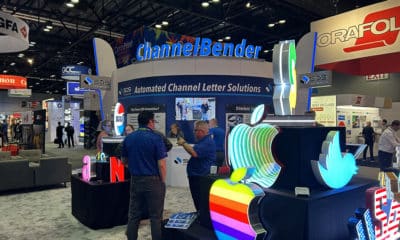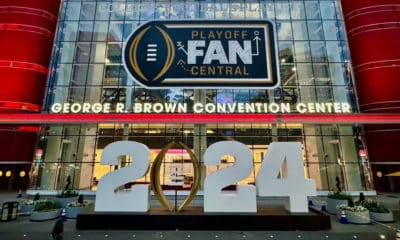Some time ago, a reader asked for a column on sales tax. This is a massive undertaking, because each state is unique. Sales-tax law varies nationwide, and Colorado’s is very complex.
This article is by no means complete; I can’t cover the subject in the allowable space. I’m only familiar with Colorado law. As we all know, laws change. I am no expert, merely a long-term practitioner. This article offers no guarantees. Most states, like Colorado, offer a book. Read the appropriate book of statutes, then ask your accountant questions. But I’ll cover basics.
Every governmental entity must raise money, but each taxing entity makes its own rules. States can tax residents and visitors within their boundaries. These laws affect not only the kind of tax, but its application. Most states include sales tax and property tax in that mix. However, each state has its own version of what’s taxable, as well as the tax rate.
The tax system isn’t really designed for the complexities we face: we work as contractors, conduct surveys and resell materials, etc. In most states, retailers buy their inventory tax free and tax the finished sale to the customer. Some states allow signshops to serve as contractors, and pay sales tax on the materials they use; the contractor isn’t required to collect sales tax. This practice reduces the tax on manufactured signs. Colorado doesn’t allow this designation.
In taxing sales, most states collect a percentage of product sales. However, some states have no sales tax, while other states levy a tax on sales of services as well as product. Some states charge a use tax as well, although not generally on the same goods.
Advertisement
Most states have one taxing entity. The state shares the tax with the cities and other entities, but this isn’t carved in stone. Colorado allows each city, county and special taxing district to set its own rates. However, in Colorado, only a “home-rule” entity can collect tax and create its own rules and forms. Most allow the state to collect the tax and pass it on to the city.
Colorado sales tax includes several exemptions. Some jobs may qualify for more than one exemption.
The first exemption is sale location. Colorado law requires the tax be levied at the point of delivery (some states use point of sale). This means that sales delivered in Colorado are subject to state tax. Sales delivered in Greeley are subject to Greeley tax. The state doesn’t collect the tax for cities unless the seller has a shop address within that district.
I once attempted to pay sales tax to the City of Evans on product delivered within its limits, but the state couldn’t accept the funds. Greeley is a home-rule city. When we move to Evans, Greeley will continue to collect tax on items delivered in Greeley, but items picked up at the shop will be taxable to Evans.
Two categories of customers are tax exempt. First is the eleemosynary (basically a non-profit) customer with a 501(c)(3) classification. The only way we can omit tax is if the state issues them a certificate exempting them from sales tax. We must record the individual’s tax-exempt certificate number.
The reseller is also tax exempt. This customer will have a retail license allowing him to charge sales tax. However, a retail license doesn’t automatically qualify him for this exemption. Colorado law stipulates that “items bought for resale” by a retailer are exempt. We extend this to contractors, signshops, architects and others who plan to sell our work to someone else.
Advertisement
A retail customer who buys a sign with his name on it isn’t exempt. In addition, each taxing district may issue its own retail license. Some resellers are exempt in the state, but not the city (or, occasionally, vice versa).
The sign itself can be taxable. In Colorado, rentals of 30 days or more aren’t taxable. More permanent signs on a lease are subject to property tax.
Many cities require signshops to pay tax when acquiring a sign permit. This contractor’s tax is calculated by the city. It’s usually less, and never more, than what the sales tax would be. The contractor’s tax preempts the sales tax to avoid double taxation. Of course, the sign is still fully taxable by the state.
Labor-only sales can be split into three sections. For electrical service and repair jobs, our shop bills materials separately (subject to tax) and then bills the charges for time as tax free. We designate repaints, windows, trucks and wall signs as service enterprise (SE) jobs.
Although these jobs use minimal materials, we’re modifying an object already owned by the customer, which, according to state law, means we’re performing a service. The customer isn’t taxed, but the materials, purchased tax free, are subject to use tax.
Strictly labor jobs are non-taxable. Sometimes the law specifies very fine delineations. For example, computer programming, emailed to the customers, is labor only, but, delivered on disk, it’s a manufactured product subject to sales tax.
Advertisement
Use tax, equivalent to sales tax, is also part of Colorado tax law. Collected as a part of sales tax, it’s levied on the materials purchased tax free and then removed from inventory for our own use. We pay the use tax. All materials used on SE jobs are considered to be used by us.
Use tax is a nuisance. First, we must list all materials for each SE job, including the quantity used. Then we calculate the cost of that material, even if it came from long-term inventory holdings. Once we’ve totaled material cost, we then multiply by the current tax rate. Use tax on SE jobs rarely exceeds $20, but employee time to prepare the paperwork costs an additional $40 to $60.
Although we purchase our materials tax free, our supplies are taxed. The government’s classification is determined by whether the item remains on the sign. Paint is material; solvent is supply. Vinyl is material; application tape is supply. Our major supplier is in Denver, so, although it collects state sales tax, we must pay use tax to the city on all supplies we buy from it.
All items for business use, purchased tax free for any reason, that would be taxed if purchased here in Greeley, are also subject to use tax. This covers purchases from non-retailers and out-of-state purchases. If taxable under Colorado law, and not taxed elsewhere, they’re subject to use tax.


 Photo Gallery1 week ago
Photo Gallery1 week ago
 Ask Signs of the Times2 weeks ago
Ask Signs of the Times2 weeks ago
 Paula Fargo7 days ago
Paula Fargo7 days ago
 Real Deal4 days ago
Real Deal4 days ago
 Benchmarks2 weeks ago
Benchmarks2 weeks ago
 Photo Gallery7 days ago
Photo Gallery7 days ago
 Women in Signs2 weeks ago
Women in Signs2 weeks ago
 Women in Signs1 week ago
Women in Signs1 week ago
















